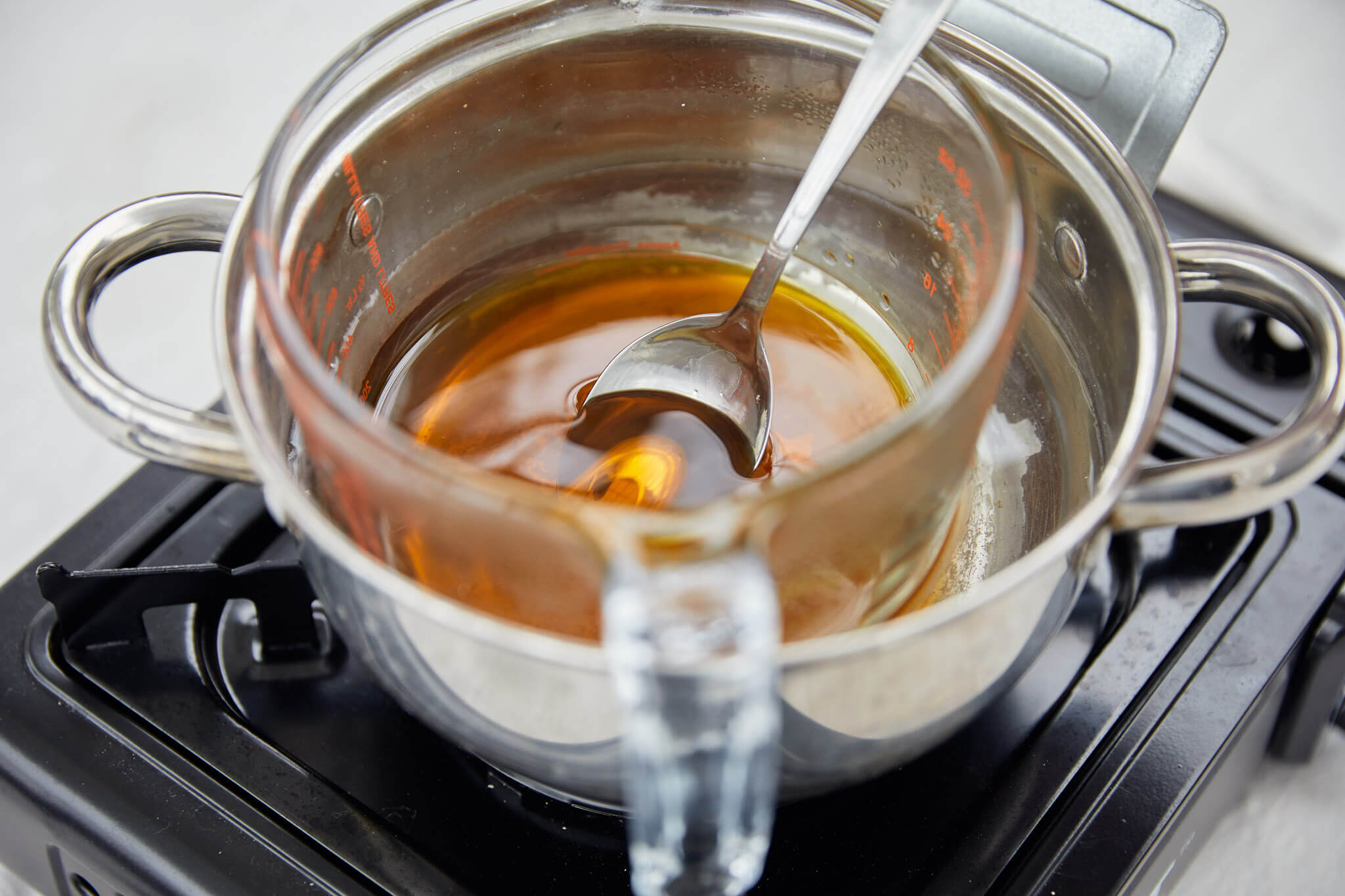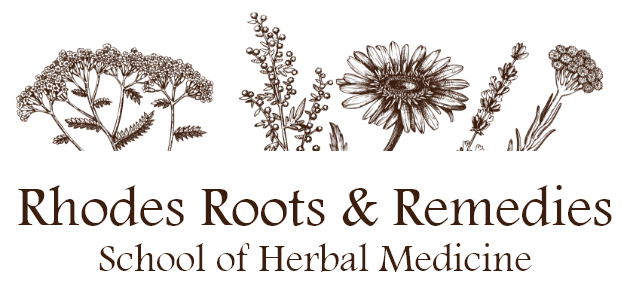Have you got a backlog of herbal remedies recipes piling up in your inbox, in your saved social posts and on your bookshelves? If so, take a moment to check in with yourself. How many of these have you actually made? And of those, how confident were you that you made them so they’ll be both effective and shelf-stable? Moreover, are you getting a bit tired of having to rely on someone else’s herbal remedies recipes, not always sure why each herb is in it, not wanting to keep buying ingredients you don’t already have and just wanting to be able to create the herbal remedies you need yourself? Collecting herbal remedies recipes is often how many people start when they’re learning herbalism, but at a certain point, you want more knowledge and independence. Here are five simple steps to make the shift from collecting and relying on someone else’s herbal remedies recipes to being able to create the herbal remedies you need yourself from a qualified herbalist.

1. Set your collected herbal remedies recipes aside for now
The first step is actually putting a pause on collecting more. It’s so easy to collect herbal remedies recipes - all the mailing lists and social accounts and beautiful new books. But I promise you, you will not be missing out on knowledge you really need - just more content.
The modern world is a constant stream of content - more than we really need. No amount of content - herbal or otherwise - can substitute for taking the time to develop the knowledge and skills of herbalism. Following someone else’s recipe doesn’t require you to tap into what you know. It merely has you repeating what someone else knows, but without the knowledge.
2. Focus on getting to know your herbs one by one
This is a hands-on, sensory process and doesn’t require you to sift through a pile of books, although they’re useful for cross-checking after you’ve done your own explorations. Pick just one herb. Don’t focus too much on which one. Then spend at least a week with it. Drink the tea throughout the week. Feel the effects it has on your body. Is it warming or cooling? Drying or moistening? Tightening or relaxing? What tastes does it have? Is it bitter, salty, sweet, sour, mucilaginous, astringent, pungent/aromatic? Observe the plant itself. Does it remind you of any parts or systems of the body? What colours do you see? Write all of this down as you feel it in your own body first hand. Then go look it up in a reputable reference book. You’ll be surprised how much you know deep within yourself, as well as how much better you remember what you know when you go through your senses.
3. Start developing your knowledge of the human body
This doesn’t mean those pink and white anatomy and physiology cutaways. This means learning how energy moves in the body, what knocks things out of balance, what the messages your body is sending you means. Many of us are used to thinking of messages of the body and healthy, natural processes as symptoms and illnesses that need to be stamped out - and a lot of herbal remedies recipes you’ll find across the internet are created from this mindset. But to really start crafting herbal remedies recipes that support your body, you need to tune into the messages and processes, understand them, and then start pairing herbs to provide the support your body is asking for to help it through.
4. Experiment with creating your own herbal remedies recipes - and keep them simple!
When you first begin formulating, have in your mind to keep the formula as simple as possible. There are a few reasons for this. First, the more herbs in a formula, the smaller the amount of each herb the individual will receive each time they have their remedy, so the impact of each herb is diluted. Second, if something doesn’t suit an individual or if a remedy needs to evolve over time, it is more difficult to identify which herb or herbs need to be adjusted. Third, the more nuanced your relationship is with your familiar herbs, the more roles one herb will be able to play in your remedy - you won’t need to include one herb for each individual aspect that needs support. Finally, working more closely with a smaller set of herbs makes it easier and more efficient in terms of space, time and money to maintain your apothecary. You’ll have less waste all round, which is more respectful of nature in all aspects.
Our first year intensive herbalism course students start with creating herbal remedies recipes that only have three herbs. When you know your herbs well, you’ll be surprised how versatile they are and just how many effective remedies you can create yourself with only three herbs. Three herbs combined create a core remedy and will often be the most prominent if you include more than three herbs in your final remedy. Three herbs are a great baseline for a tea or tincture blend and create a solid infused oil blend.
5. Want to really go beyond endless herbal remedies recipes? Focus on truly learning herbalism.
There are so many similarities between herbal medicine and cooking. Both work with tastes and combinations of flavours. Both have a specific outcome in mind - whether it’s to make a nourishing winter stew or a nourishing immune tonic. Both use many of the same tools.
But just like cooking, if you only focus on following recipes, you’ll miss out on the creativity, the ability to confidently make substitutions if you’re out of one ingredient or another, and your ability to nourish your family will be limited. If you learn how to cook, instead of relying on following recipes, you can make anything. It will taste great, you won’t have to buy all sorts of specialist ingredients all the time, and you’ll be able to whip something up out of all the leftovers in your fridge. It’s the same with herbal medicine. If you learn herbalism - develop your knowledge of the plants, the human body, energetics and remedy making techniques - you can support yourself and your family through so many of life’s ups and downs effectively and safely, even if you don’t have 100 herbs in your home apothecary. That’s where the power lies.
So if you’re ready to stop collecting endless herbal remedies recipes and start living herbalism, here are my five steps as a qualified herbalist. First, set your collected herbal remedies recipes aside for now. Second, focus on getting to know your herbs one by one. Next, start developing your knowledge of the human body. Then experiment with creating your own herbal remedies recipes - and keep them simple! Ultimately, if you want to really go beyond endless herbal remedies recipes, focus on truly learning herbalism.
Herbal medicine lives in the natural world, not the digital one (or even the black and white books on shelves world). It is a living, breathing practice that is best learned with experienced herbalists in person. The best way you can go beyond being limited to following someone else’s herbal remedies recipes is to find an in-person herbalism course near you and go. You’ll meet like minded people, you’ll get to develop skills hands-on and, most of all, you will develop lasting knowledge that becomes part of your daily life. So leave that pile of herbal remedies recipes to the side and get cracking!
If you’re here in the UK and you’re keen to go beyond endless herbal remedies recipes and start living herbalism, you’re very welcome to take the next step on your journey learning herbal medicine with us on our intensive herbalism course - Awaken Herbal Wisdom - which spans all four seasons and gets herbalism both deep into your bones and your daily life. You can learn more about our herbal medicine course here. Be sure to put your name on the waiting list to see what the current cohorts are up to and get first access to enrolment before it opens.
Whatever your next step learning herbalism is, I hope you enjoy the journey!
At Rhodes Roots & Remedies School of Herbal Medicine, our practice of herbalism is rooted in the belief that we must remember, reclaim and relearn our knowledge of our bodies, our autonomy and how to work with plant medicine in order to bring control of our own health back into our families and homes for a sustainable future for ourselves and the planet. Through our intensive herbalism course, we facilitate the development of confident, empowered herbalists, attuned to the messages of their bodies and the natural world. Living the deep wisdom of herbal medicine within themselves, their homes and their communities, they uplift themselves and others, creating a stronger society organically. We do hope you'll join us on your journey!

